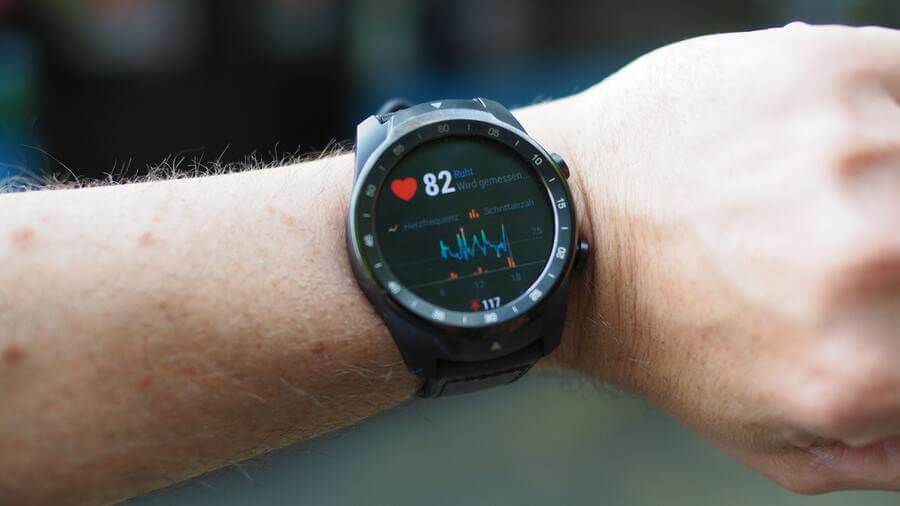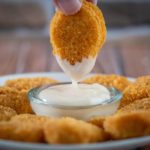McDonald’s is a popular fast-food chain known for its quick and convenient meals. However, some individuals may experience an increased heart rate or a “fast food rush” after meals.

This article will explore the reasons behind this phenomenon and analyze the factors contributing to elevated heart rates after consuming McDonald’s food.
The “Fast Food Rush”
Understanding the Concept of Heart Racing
Heart racing, also known as tachycardia, is an elevated heart rate exceeding the normal resting range.
It is a physiological response due to various factors, including physical exertion, stress, or the consumption of certain substances or foods.
Correlation Between Food and Heart Rate
Certain types of food, mainly those high in sugar, sodium, and fat content, can increase heart rate.
This correlation between nutrition and heart rate is influenced by several factors, such as the ingredients used, individual sensitivity, psychological factors, and more.
Ingredients and Nutritional Content
Analyzing High Sugar and Sodium Content
McDonald’s meals often contain ingredients that are high in sugar and sodium.
These include sugary beverages, processed sauces, and condiments. Consuming excessive amounts of sugar and sodium can increase heart rate due to their impact on blood pressure and fluid balance.
Impact of Processed Ingredients
Processed ingredients, commonly found in fast food, can also contribute to elevated heart rates.
These ingredients often contain additives, preservatives, and artificial flavors, which may have a physiological effect on the body and potentially influence heart rate.
High-Fat Meals and Heart Rate
Influence of Saturated and Trans Fats
McDonald’s meals are typically high in saturated and trans fats, associated with adverse health effects, including an increased risk of cardiovascular diseases.
Consumption of high-fat meals can lead to inflammation and impaired blood flow, potentially contributing to an elevated heart rate.
Connection to Increased Heart Rate
Studies have shown that high-fat meals can trigger the release of certain hormones and inflammatory markers in the body, leading to an increase in heart rate.
Additionally, the digestion process for high-fat foods requires more energy, which can temporarily elevate heart rate.
Sugar and Caffeine
Examining Sugary Beverages and Sweets
McDonald’s offers a variety of sugary beverages and desserts that can increase heart rate. These items are often high in refined sugars, which can cause a rapid spike in blood sugar levels and subsequently impact heart rate.
Effects of Sugar and Caffeine on Heart Rate
Sugar and caffeine, commonly found in McDonald’s beverages such as soft and coffee-based drinks, can act as stimulants.

They can temporarily increase heart rate and provide a feeling of alertness or energy. However, excessive consumption of these substances can negatively affect heart health.
Impact of Sodium on Heart Rate
Sodium Levels in Processed Foods
Fast food, including McDonald’s meals, tends to be high in sodium due to processed ingredients and condiments. Sodium plays a crucial role in fluid balance, and excessive intake can increase blood pressure and heart rate.
Sodium’s Effect on Blood Pressure and Heart Rate
High sodium intake can cause the body to retain water, increasing blood volume and strain the cardiovascular system. This can result in elevated blood pressure and an accelerated heart rate as the heart works harder to pump blood throughout the body.
Individual Sensitivity
Varied Reactions to Food Components
Each individual may have a unique sensitivity to specific food components, such as sugar, sodium, or caffeine. Due to their responses, some individuals may experience a more pronounced increase in heart rate after consuming McDonald’s food.
Genetics and Heart Rate Response
Genetic factors can also influence an individual’s heart rate response to certain foods.
Some people may have genetic predispositions that make them more susceptible to an increased heart rate after consuming specific ingredients or food combinations.
Influence of Food Additives
Considering Artificial Colors and Flavors
McDonald’s and other fast-food chains often use artificial colors and flavors in their food products.
While these additives are generally recognized as safe, some individuals may have sensitivities or reactions to them, potentially leading to increased heart rate.
Possible Reactions on Heart Rate
Certain food additives, such as artificial sweeteners or monosodium glutamate (MSG), have been associated with adverse reactions in some individuals. These reactions can manifest as increased heart rate, palpitations, or other cardiovascular symptoms.
Carbohydrates and Blood Sugar
Rapid Glucose Increase and Heart Rate
Carbohydrate-rich foods, including those found at McDonald’s, can cause a rapid increase in blood glucose levels. This sudden spike in blood sugar can stimulate the release of hormones that may temporarily elevate heart rate.
The body responds to the influx of glucose by increasing insulin production, which can influence heart rate.
High Glycemic Index Foods
Fast foods like McDonald’s often contain high-glycemic index carbohydrates, which cause a quicker and more significant rise in blood sugar levels compared to low-glycemic index foods.
This rapid increase in glucose can lead to a temporary increase in heart rate as the body works to regulate blood sugar levels.
Psychological Factors
Anticipation and Excitement
The experience of consuming fast food, including McDonald’s meals, can be associated with anticipation and excitement.
These psychological factors can elicit increased heart rate due to heightened emotions and the release of stress hormones such as adrenaline.

Impact on Heart Rate
When individuals are excited or anticipating something enjoyable, their heart rate naturally increases as part of the physiological response to excitement.
This effect can be heightened when combined with fast food consumption, potentially leading to a noticeable increase in heart rate.
See Also: Can You Eat McDonald’s After a Workout?
Post-Meal Effects
Heart Rate Increase and Digestion
After consuming a meal, including one from McDonald’s, the body diverts blood flow to the digestive system to facilitate digestion.
This redistribution of blood flow can temporarily increase heart rate as the heart works to supply sufficient oxygen and nutrients to aid in the digestive process.
Strain of Overeating
Overeating, a common occurrence with fast food consumption, strains the digestive system. The increased workload on the digestive organs can indirectly affect heart rate, leading to a temporary elevation.
Conclusion
The relationship between McDonald’s food and an increased heart rate is multifaceted.
Factors such as high sugar and sodium content, processed ingredients, high-fat meals, sugar and caffeine, individual sensitivity, psychological factors, food additives, carbohydrates, blood vessels, hydration, post-meal effects, and preexisting cardiovascular conditions all play a role.
By understanding these factors and making informed choices, individuals can better manage their heart rate response and promote overall heart health. It is always advisable to consult healthcare professionals for personalized advice and guidance.






